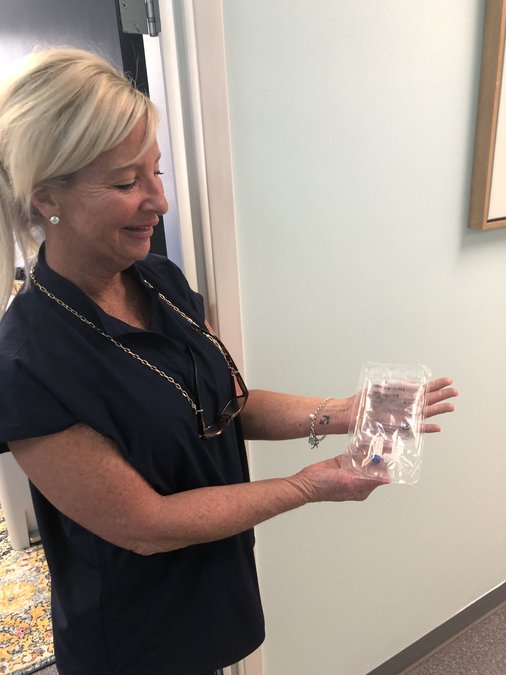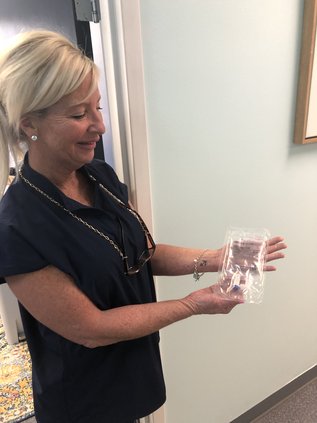As COVID-19 continues to linger, even with the end of the global pandemic, the fight against it continues too — and the front lines are in Hinesville.
Above Dr. Glenn Carter’s office, a clinical study by Invivyd is underway. The CANOPY study is testing a new set of monoclonal antibodies to use in thwarting COVID-19.
The trial, under the direction of Sheila Bonner of Coastal Heritage Clinical Research, started a couple of weeks ago with approximately 20 people, and Bonner said they hope to get 150 or more.
“They are hoping this particular product will cover all the new COVID variants,” Bonner said. “Monoclonal antibodies are especially interesting because they are different from the vaccines, and so many people tend to be scared of the vaccines.”
A vaccine, Bonner said, is like injecting a picture of the “bug” into your body, “so that if your body comes in contact with that ‘bug,’ your body will recognize and build an army to fight that invader. With the monoclonal antibody, it is the army. It is a readymade army instead of building an army.”
The monoclonal antibodies are injected through a tiny IV. Those who sign up for the clinical trial cannot have had a COVID-19 vaccine within 28 days of their first injection. They also cannot have a flu vaccine within 14 days.
After receiving the dose of monoclonal antibodies, participants must stay at the site for an hour — but as Bonner noted, there are snacks, drinks and massage chairs.
“We have to go through the inclusion and exclusion criteria to make sure they are appropriate for the trial,” she said. “Most people do qualify.”
Some of the trial participants have been referred by Dr. Carter and Hinesville is one of 16 sites conducting the trials. The trials are being limited to 350 participants total.
“We were the first site in the world to randomize and enroll,” Bonner declared.
For the participants, there is a second infusion three months after the initial dose. Each infusion lasts 30 minutes. There is a checkup after six months, a phone call at nine months and another visit at 12 months.
“The whole study lasts about a year,” Bonner said. “We follow up with them every week that they should check in with us if they have symptoms of COVID.”
What one of the elements separating monoclonal antibodies from the COVID-19 vaccines is the lack of side effects. Monoclonal antibodies have been shown to work for treatment and prevention.
Bonner has had the COVID-19 vaccine and stipulates she is not anti- vax — “I would do it again in a heartbeat,” she said — but she did have side effects, one of which was every Coca-Cola tasted flat.
“For me, the side effects of the vaccine were pretty harsh,” she said. “It put me down. I work in clinical trials. I think we need vaccines.”
“We hope we can continue to spread the word about it,” Bonner said of the trials. “We could not be more thrilled it has started.”
Bonner added the sponsor company has been great to work with and that so far, the five-person team has not seen any side effects.
“We’re hopeful for the drug and hope we can help people and bring a better treatment to the world,” she said.
There have been some long days, up to 14 hours, in the early stages of the trial — but that’s OK with Bonner.
“It is non-stop,” she said. “Research is a lot of work, but it is so worth it in the end.”

